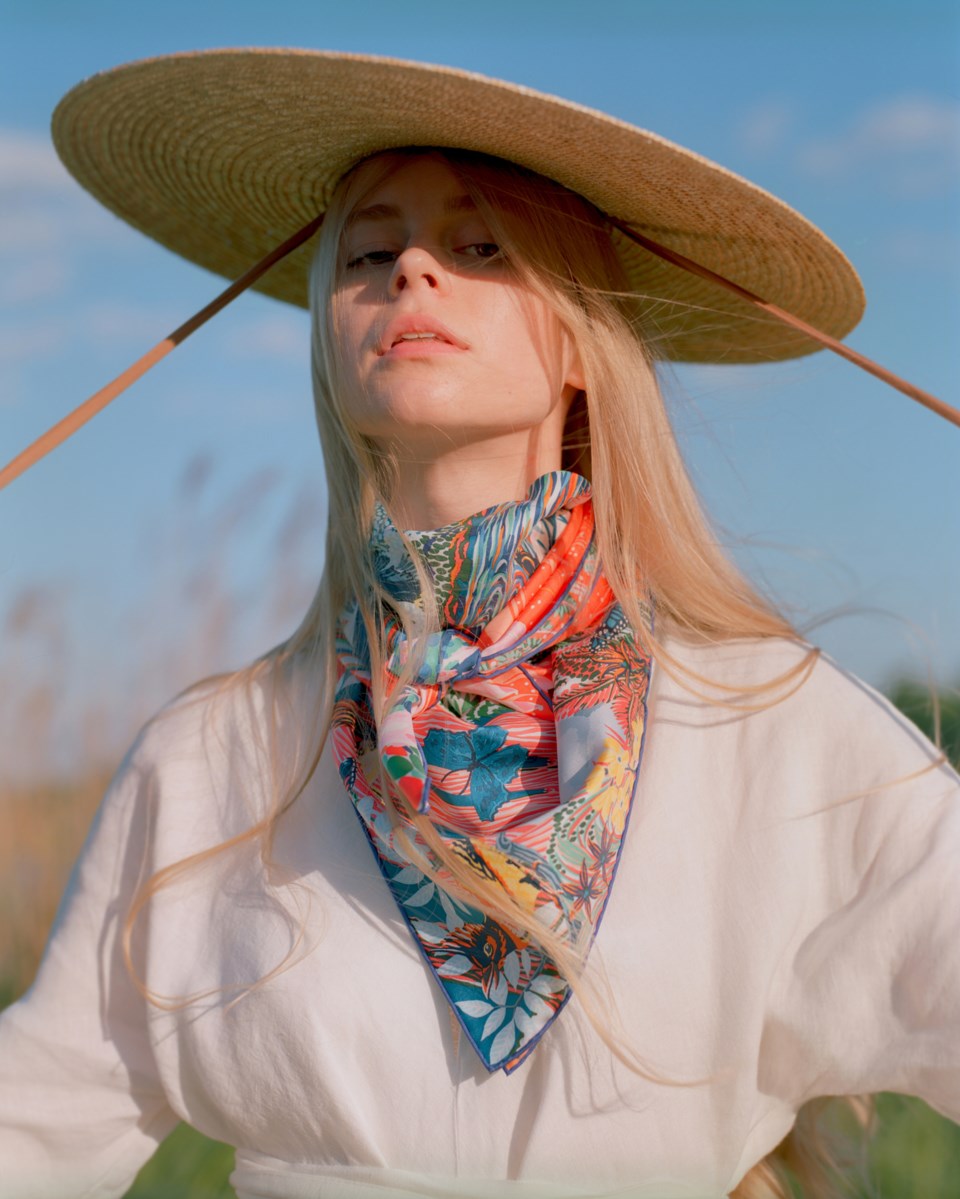The scarf has been worn by men and women for centuries with practical, cultural, and religious applications. The most commonly referenced earliest use of the scarf is said to be when as a barrier to protect her scalp from her jewelled headpieces in 1350BC Ancient Egypt.
The symbolism and usage of the scarf have endured for centuries in religious and cultural contexts but its role in popular western culture as a fashion accessory has evolved over the years. During World War I, scarves were a practicality to keep soldiers warm in the trenches, many of which were knitted but high-ranking officers still wore silks and used them to transport gunpowder because it could burn without leaving behind any ash.
Five million square yards of silk were shipped to the US war department per month between 1917 and 1918 and when the war was over, suddenly they were left with a surplus of silk on their hands and so the silk scarf was absorbed back into fashion with Hermès and other brands turning it into a timeless accessory.
To this day, the silk scarf is associated with Grace Kelly and Audrey Hepburn and, for a long time, it symbolized the wealthy or elite which made it inaccessible to many and it fell out of circulation except within a niche group.
That didn't mean the death of the scarf though, on the contrary, the early to mid-2000s saw an explosion of scarves on red carpets and high streets. The fabrics and styles diversified and gave way to four main categories: bandanas, skinny necklace scarves, chunky infinity scarves, and emo plaid scarves.
Some styles were a combination but for the most part, they fit into one of these groups until they just fell out of favour along with many other trends of that era.
But what does that mean for us now? Can we wear a scarf?
The answer is yes, always wear what makes you happy and feel good regardless of what any trend forecaster is telling you. But for those who want to know how to bring the scarf into 2022, here is how people are styling them now.
The silk scarf is back in a big way. The advent of rayon and polyester has meant that producing scarves that look expensive but aren't is easy and accessible. But people aren't wearing them the way you think. Sure, tying it around your neck Fred Jones or 1950s air stewardess style will always be acceptable, but people are also fashioning the squares of fabric into tops that hang in a flowy strapless triangle of fabric off the body, with a sexy open back - save for the knot that secures it in place.
Or try getting a longer scarf and place the scarf on your back just above the waist, crisscross it over the bust and tie it at the nape of the neck. Or leave the fabric open and drape it around your back above the waist and tie it between the breasts (I'd recommend using double-sided boob tape for this one).
If the scarf top look is a bit much for your taste, wrapping a silk scarf around a ponytail to hide the elastic or braiding a silk scarf into your hair for a bit of colour is also very popular right now.
The easiest tutorial I have seen so far is to start with two loose pigtails and slip each end of the scarf over the elastic and begin braiding it into each pigtail. Then take the ends of each braid and lift them up to meet at the crown of your head and tie the ends of the scarf together in a bow.



